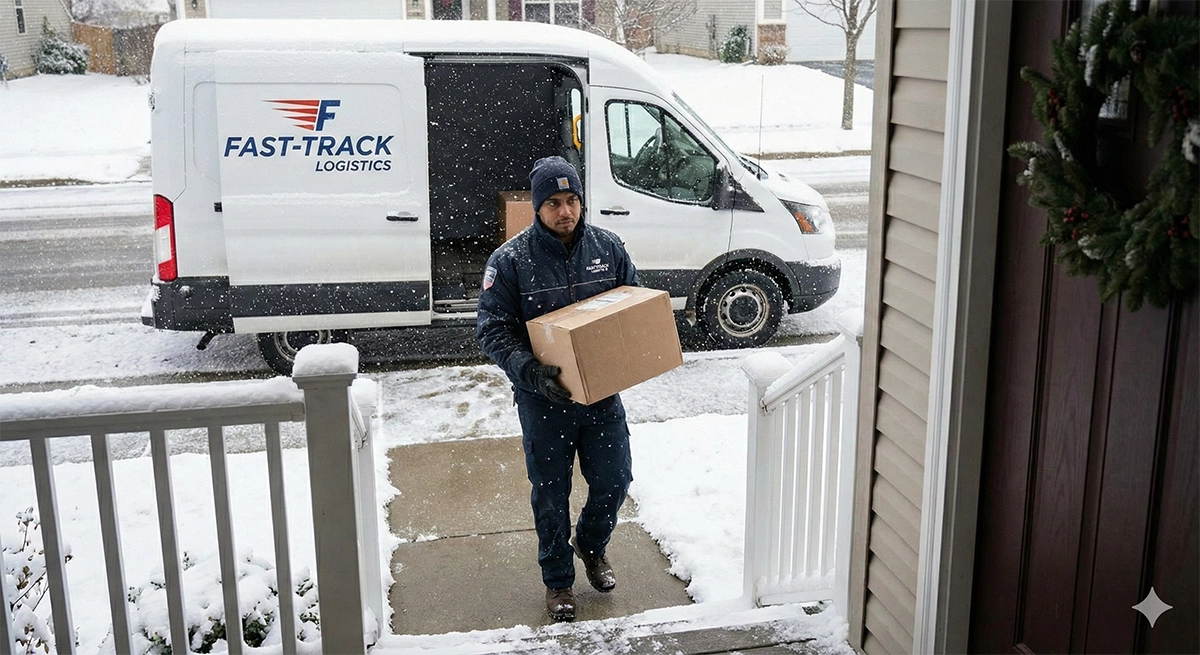Weather-related “slip,trip and fall” injuries primary driver of workers’ comp claim frequency
Pinnacol Assurance analyzed its data to identify the “Most Dangerous Day” for workers in Colorado and found, over the past five years, it was consistently Jan. 9. As Colorado’s largest workers’ compensation carrier, Pinnacol tracks trends in worker injuries with the goal of providing increased education where it counts.
Pinnacol’s claims data showed a 62% spike in injuries on Jan.9, with an average of 198 workers getting injured in Colorado on this day.Further analysis revealed that most injuries were “slip, trip and fall on ice or snow,” one of the more common workers’ comp injuries Pinnacol sees.
“Snowy weather is part of Colorado’s allure and charm, and anyone who’s lived or run a business here knows conditions can change rapidly.So it’s no surprise that we see a lot of these injuries,” said Ellen Sarvay, Pinnacol safety consultant and expert in slip, trip and fall avoidance. “More awareness, preparation and caution in bad weather could help reduce these injuries significantly.”
Injuries from slips, trips and falls are usually relatively minor, causing minor bumps, bruises and cuts. However, Pinnacol sees more severe injuries every year, including serious muscle injuries, bone breaks and even head injuries, which can be very serious and even life-threatening. The most common injuries Pinnacol recorded on Jan. 9 were:
- Slip, trip or fall
- Strains
- Struck(usually by an object)
- Strikes(usually a worker makes contact with an object, such as hitting their head on a shelf)
- Cuts
The industries contributing most to injuries on Jan. 9 were professional/clerical (office workers) and health care; Jan. 9 was the Most Dangerous Day for both industries.
How to make Jan. 9 a less dangerous day for workers
There are lots of things both employers and employees can do to help avoid injuries and claims:
Employers have a responsibility to keep walkways, parking lots and other surfaces well-lit and free from ice and snow.“If you can’t see where you’re going, it’s harder to stay on your feet,” said Sarvay. Another danger zone that employers may not realize is indoor surfaces.
“Pinnacol sees many claims from people hurting themselves when they hit those indoor surfaces, like lobby areas,” said Sarvay. “It’s important to take a look at your building’s entryways and ask what happens when snow gets tracked in.” Make sure you have enough mats/rugs to cover any flooring that gets slick when wet and that the mats in place don’t end abruptly or pose any other hazards from being lumpy, curled or in poor condition.
For employees, it starts with awareness. Sarvay said, “Make sure you are looking at weather forecasts and choosing your footwear accordingly. Snow boots are best, and workers should, at a minimum, pick a shoe with good tread. Leather-soled shoes and high heels make walking on snowy and icy surfaces unsafe.” Sarvay also said workers who wear gloves or mittens not only keep their hands warmer but also keep their hands out of their pockets for balance and potentially catching themselves if they do fall.
A little-known danger zone for workers is getting in and out of cars. As they transfer their weight to one leg either getting in or out of vehicles,it’s easy for them to lose their footing on icy surfaces. Sarvay counsels employees to maintain three points of contact at all times, with either two feet on the ground and a handhold on something that isn’t going to move like the door frame or steering wheel, or one foot on the ground and two handholds.
Pinnacol safety consultants also tell employers to teach their employees who may find themselves walking on an unsafe surface to “walk like a penguin.” “It sounds silly, but it’s easy to remember,” said Sarvay. “And it really does work!” Keep your hands out of your pockets, take slow shuffling steps — step down, not out, to put more of your foot in contact with the ground.
Pinnacol analyzed additional major industries in Colorado and found the Most Dangerous Days were:
- Construction and Natural Resources: July 28
- Education: Feb. 4
- Service & Hospitality: July 13
Not every worker injury is preventable, even in the best conditions. However, awareness, preparation and training can be a big factor in preventing claims in the future.










